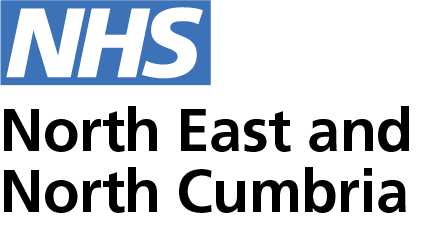Ask for help before money worries affect your health, says NHS
Ask for help if your money worries are getting on top of you - that's the message from NHS leaders and money experts during national Talk Money Week (7 – 11 November 2022).
NHS leaders in the region have joined forces with money advice experts to spread the word that there is free professional help available if you are concerned about debt, credit or just making ends meet.
Samantha Allen, Chief Executive of the NHS's North East and North Cumbria Integrated Care Board (ICB), said: "Many people are expecting a difficult winter, with bills rising and energy costs going through the roof. We all worry about money at times, but if it's affecting your mental health, please ask for help – don't wait for things to get worse.
"Money worries and mental health problems often go hand in hand, and it makes a big difference if you get help early. The cost of living is a real concern for people, but it's OK to ask for help, and there’s lots of support out there."
Talk Money Week is annual event run by the Money and Pensions Service. It’s an opportunity for everyone to get involved with events and activities across the UK and have more open conversations about their money – from pocket money to pensions – and continue these all-year-round.
Sarah Murphy, Senior Health, Social Care and Welfare Systems Strategy Lead at the Money and Pensions Service, said: “Open and honest discussions about money help us build financial confidence and resilience to face whatever the future throws at us. They also lead to stronger personal relationships and better mental health, while at the same time reducing the stress and anxiety that money problems can cause.
“This Talk Money Week, we’d encourage everyone to start the conversation with family or friends and share the burden of any money worries. It may be a difficult time for many households, but by meeting the challenge head on and getting help early if they need it, everyone can begin to find the best way forward for them.”
Health leaders are keen to highlight the link between money problems and mental health, and have identified a reduction in suicide deaths as a key objective for the future.
Samantha Allen added: "Health professionals have a major role to play, by being aware of the risks and knowing which services can help with money problems. It can be difficult to raise the subject but we're working to help colleagues feel able to spot financial concerns and discuss them sensitively."
If you need advice around debt, managing your spending or how to make your income go further, Money Helper offers free, impartial guidance on a range of money issues. Contact them on 0800 138 7777 or go to www.moneyhelper.org.uk. Your local council can also provide advice and support.
If you need a helping hand with your mental health, visit www.nhs.uk/mental-health, speak with your GP or call NHS 111 free.
People who are struggling with debt can get a period of respite through the Government's 'breathing space' scheme. A standard breathing space, which gives legal protections against creditor action for up to 60 days, is available to anyone with problem debt.
Mental health crisis breathing space is an option for people receiving mental health crisis treatment. It gives temporary protection from creditors, including freezing of most interest, fees and charges on the debt and pausing most enforcement action and contact from creditors, giving time to focus on your recovery. This debt respite lasts as long as your mental health crisis treatment, plus 30 days.
Registered mental health nurses, social workers and mental health professionals can refer someone who they think might be eligible to a specialist mental health and money advice service. You can find out more at www.mentalhealthandmoneyadvice.org.
If you are having difficulties dealing with your energy supply, you may be eligible for your energy supplier's Priority Services Register for people who may be vulnerable – for example if you're a pensioner, rely on power for essential medical equipment or would struggle to maintain your well-being if you lost your energy supply. Ask your energy supplier for more details.
